“If Spain Became a Republic Once Again, We’d Have Lost the War a Little Less.” Georges Bartolí Remembers His Uncle Josep
One morning in 1971, Georges Bartolí woke up more excited than usual. The day had finally come; he was going to meet Josep, his legendary American uncle. Georges, 14, lived with his parents, Catalan Republican refugees, in Perpignan, in the south of France. Josep Bartolí was visiting them from New York, where he had been a renowned illustrator and painter for a quarter of a century.
“An uncle from America! I imagined him in a Stetson hat, cowboy boots and spurs,” Georges recalled when I spoke with him this past July. Alas, reality did not live up to the teenager’s imagination. “He was a short man who appeared to be in his early sixties—which he was—and who looked like my father’s brother—which he was, too.” Still, despite the momentary disappointment, uncle and nephew soon hit it off: “I immediately took a liking to his way of speaking. He was a man of a pure and hard intelligence who spoke with the same irony that he deployed in his graphic work. It’s as if he were always drawing, even when he talked.” The reunion was an emotional one: Georges’ father, Salvador, had not seen his brother since 1939.
Josep Bartolí i Guiu was born in 1910 in Barcelona. He lost his mother young; his father was a musician. The Nationalist coup of the summer of 1936 finds Josep in the Catalan capital, working as a newspaper illustrator. Although he sympathizes with the POUM, which leans Trotskyist, he helps found the Professional Illustrators’ Union of Catalonia, which affiliates with the Socialist UGT. He spends the three years of the war working for the union, fighting at the front—in Aragon, he serves alongside Ramón Mercader in a unit of the Catalan Communist Party (PSUC) led by Ramón’s mother, Caridad—and in the hospital, recovering from his frontline injuries. In early 1939, together with half a million Spanish refugees, he crosses the French border and is interned in a concentration camp. Between various arrests and escapes, Josep passes through the camps of Argelès, Saint Ciprien, Bram and Barcarès. The Nazi invasion finds him in Paris, where he lives in hiding. Miraculously, he manages to arrange for boat passage that, via Casablanca, takes him to Mexico.
In Mexico City, Josep joins the Republican exile community—some 20,000—picks up illustration gigs and is adopted into the circle of Diego Rivera and Frida Kahlo. In 1944, he publishes the scores of heart-wrenching pen drawings he’d made in the camps, in a book co-edited with his friend Narcís Molins. Channeling Dürer, Goya, and the avant-garde, Bartolí resorts to caricature to capture the tragedy, misery, and bitter irony of the Republican defeat. His images overflow with anger at the inhumane treatment of Spanish refugees—skeletal and saint-like—by fat, lascivious French gendarmes.
Two years later, Bartolí moves to New York City, where he joins a group of abstract expressionists that includes Mark Rothko, Jackson Pollock and Willem De Kooning. For several years, he carries on an intense love affair with Frida Kahlo, whom he had met in Mexico and who passes through the city for her medical treatments. (Twenty-five of Kahlo’s love letters to Bartolí were sold at auction five years ago.) While working on his painting, he earns his living as a cartoonist and designing sets for Hollywood—until he ends up on the blacklist, a stigma he shares with Lincoln vet Alvah Bessie. In New York, he illustrates ads for luxury products and works for magazines like The Saturday Evening Post and Holiday, a luxury travel monthly. In 1951, Holiday features four pages of his artistic impressions of Franco’s Spain. “José Bartolí, who has revisited his native country with a notebook and pencil, captures its tragic grace in street scenes and national types,” an editorial note states. The images include a view of Barcelona, which, according to the caption, has “repaired its scars from the Civil War.”
In fact, Barcelona had not erased its scars—nor had Josep set foot in Franco’s Spain. He didn’t cross the border again until 1977, two years after Franco’s death, following another extended stay with his brother’s family in Perpignan. By then, Georges Bartolí had turned 20 and had embarked on what would become his profession, photography. (Today he is a well-known photojournalist for L’Humanité and other venues).
“At that time, Josep was preparing an exhibition,” Georges recalls. “He’d set up a workshop of sorts next to my darkroom. We lived together for more than a year. We smoked and argued every day. I was a member of the Communist Party. My uncle, who like the rest of the family was more of an anarchist, wasn’t happy about that, to put it mildly.”
Josep never returned to Europe for good; he died in New York in 1995. In 2009, Georges paid tribute to his uncle with La Retirada: Exode et exil des républicains, a book published in French that, in addition to an anthology of drawings of the war and the camps, included a series of short memoirs by Georges. It closed with a photographic record of Georges’s retracing the route his parents and uncles took 70 years earlier, from the front to Barcelona, through Port-Bou, to the beaches of Argelès-sur-Mer. The updated Spanish translation La Retirada was published this summer. In France, meanwhile, the well-known cartoonist Aurel has made a biographical feature film about Josep Bartolí that will be part of the official selection at the Cannes festival this fall.
Your uncle, a Catalan, was born Spanish, but became a Mexican and American citizen. As the son of refugees, how do you deal with the issue of national identity?
I’m French. My sisters and I were born Spanish, but French law allowed us to be nationalized. My dad didn’t want us to; he was convinced that we’d be going back to Spain soon. At that point my mother, who was smarter than him, asked him: “So you want your son to be drafted for Franco’s military?” That convinced him.
Do you feel French, Catalan, Spanish?
I feel many things, but they complement each other. I know I owe a lot to France. No matter how badly it received my parents, the country protected us, educated us, made us who we are. I wholly accept my French identity. My passport is French. But I also feel Catalan. Most of my Catalan family is pro-independence. Of my three identities, what I feel least strongly is Spanish. Still, as the son and grandson of Spaniards, I have the right to Spanish nationality. If I applied for a passport, they’d have to grant me it.
But you’ve never applied for one.
No, because even before being French, Catalan or Spanish, I am a Republican. And I will not apply for Spanish nationality as long as Spain remains a monarchy, heir to the Franco regime. I refuse to be a subject to a king who was placed on the throne by Franco.
And if Catalonia were to become independent?
In that case, within 24 hours you’d see me in the Catalan village closest to the border to request a passport. (Laughs.)
About Spain, you write in the book: “If the Republic returns one day, we will have lost the war a little less.”
Today’s Spain is obviously not Franco’s Spain. But I still see a lot of residual Francoism: in the political world, the armed forces, the judiciary, general mentalities and, as I said, in the Monarchy. The famous Transition erased us from history. My parents and all the exiles—who never had a real existence, by the way, because exile is the denial of what you are—were sacrificed for the sake of national reconciliation. The only way to rehabilitate us a little would be if the monarchy fell.
Your mother, who was a teenager when she crossed the border, wanted to be a medical doctor. “She was not destined to be a housewife or a shopkeeper in Perpignan,” you write; “That is her broken dream of the Republic. I am the child of the broken dream.” Is the desire for rehabilitation primarily sentimental and family related, or primarily political?
It’s one hundred percent political. If I talk about my family it’s because that’s what I know. But when I do, I’m referring to the half a million Spaniards who were erased from history. I was simply lucky enough to know my family, to have my family assume their Republican legacy, and to have an uncle who was able to capture that history in his work.
Speaking of erasures, the French Republic has also had a hard time coming to terms with the past. A lot was covered up for a long time. I am referring not only to the infamous collaboration of Vichy, but also to the concentration camps that your family lived through, or the leading role played by the Spanish Republicans in the resistance against the Nazis. In France too, acknowledging those chapters of the national past has been a slow, partial and contradictory process. As you write in the book, for example, it was ironically a right-wing president, Chirac, who in 1996 finally granted the status of former combatant to the French survivors of the International Brigades who participated in the Resistance. France, too, has been frightfully forgetful.
Exactly. That’s why, when I wrote this book in 2009, I did so primarily for a French audience. Beyond the south, many still don’t know the slightest thing about the history of the concentration camps. The truth is that France betrayed the Spanish Republicans three times. The first was the so-called “non-intervention” of 1936. The second was in 1939, when the country treated them as enemies. And the third was when France, with the connivance of the British, left Franco in power after the Second World War after having taken advantage of the Republicans’ help to defeat the Nazis. France broke all the promises it made to the Spanish Republicans, who not only sacrificed themselves to free France but were often among the most capable of the maquis. That third betrayal was perhaps the harshest one of all.
You explain in the book that the silence extended beyond the official history. There was also plenty that was left unsaid within your family.
That’s right. Don’t forget that our story was one of humiliation. We’d been defeated. We had lost the war—unfairly, since Franco won it with the help of Hitler and Mussolini. As often happens, those stories were covered up. Until very late in life, my father would barely speak to me about the war and even less about la Retirada, the Retreat. And I understand that. It’s not easy for a father to talk to his son about a defeat. That is why I was able to talk much more about it with my uncle, who had no children and with whom I had a more political relationship, almost as an equal, although of course we were far from equals. He simply wasn’t my dad and that made a world of difference. That’s also when I realized that what my dad couldn’t do—to tell the story of what happened to him and his family—was now my job. And I am lucky enough to have my uncle’s work to help me do that. Nothing explains that story better than his drawings.
That means a lot, coming from a photographer!
I’m serious. The drawings are a truer, more realistic record of the refugees’ experience than the photographs that exist of the camps, most of which were taken by outside photographers, for whom the prisoners posed with their fists raised. The drawings, on the other hand, show life from the inside. They document the suffering, the illnesses, the humiliations the refugees endured at the hands of the gendarmes and the colonial troops that guarded the camps. I’ll tell you an anecdote: my uncle had only one copy left of the book on the camps he’d published in Mexico in 1944. That copy was used for an exhibition he had in Terrassa in 1984. When the exhibition ended, he gave it to me as a gift with the following dedication: “For Georges, this ‘photographic’ testimony that perhaps one day will manage to break the conspiracy of silence.”
Do you feel that you’ve followed in your uncle’s footsteps?
I don’t have the slightest talent for drawing. But if I chose photography as a medium it’s because it, too, is political. I have never believed in the supposed objectivity of photography. A photograph is a composition as much as a drawing is. And it’s true that the way I see photography owes a lot to the conversations I’ve had with my uncle. I use the camera in the same way he used the pencil: as a weapon. A non-lethal weapon, to be sure, but a weapon nonetheless. We’re combatants.
Josep Bartolí briefly fought with lethal weapons as well. On the Aragon front, at the beginning of the Civil War, he served alongside of Ramón Mercader, in a communist militia, although your uncle sympathized with the POUM, which leaned more Trotskyist. He also helped found a union that affiliated with the Socialists. Four years later, that same Ramón Mercader killed Trotsky who, like your uncle would later, have an intense love affair with Frida Kahlo. How did Josep deal with all that political and romantic intrigue?
After fighting in the ranks of the Fifth Regiment, for all intents and purposes he broke with the Communists. But the truth is that he never was a card-carrying member of any party. At heart, he was a libertarian communist. He was close to the anarchists, but their dogmatism turned him off. And he felt the same about the communists. The fact that his union joined the UGT was almost accidental. They could just as easily have joined the Anarchist CNT. And then there was his Catalanism, which complicated everything, as it still does today. In exile, he ended up associating mainly with former members of the POUM. How my uncle Josep dealt with all that? By sticking to a simple motto: Republic, socialism, humanism.
Once in New York, did he get involved with the Spanish exile community?
Not really. Although he always knew he was linked to the history of the war, at a certain point—thanks in large part to Frida Kahlo—he decided to switch from black-and-white to color. In both art and life. Frida told him: “You’ll never win the civil war. Memory is one thing and life is another. You must accept the memory, but you can’t let it consume your life. You’ve got to move on to something else.” And that’s what he did. Although he never lost sight of who he was and where he came from.
It seems he also sympathized with the US civil rights movement early on. I came across a book of his on African American history. In the text that opens it, he calls Spain out for its complicity in the history of American racism: “The black American child is taught white ‘history’ and when he is told about Africa, the story is limited to the image of a vast jungle territory populated by apes and European explorers, thus hiding or distorting the truth about the purposes of the atrocious hunt for humans that the Arabs, Spaniards, Portuguese, English, Dutch and French carried out in the African ‘wilderness.’”
Yes—that book, The Black Man in America, came out in Mexico but was designed as a project for a mural commissioned by an important New York bank. But just like the famous mural that Diego Rivera did for Rockefeller, Josep’s was never executed because it was considered too radical.
It is striking how little Josep Bartolí has been recognized in Spain. Most his work on the war and the camps is at the municipal archive of Barcelona—but as far as I know, the Reina Sofía Museum in Madrid, for example, has not a single piece of his in its collection. How is the situation in France?
Better. In addition to Aurel’s film about Josep that has just been selected for the Cannes festival, there will be a big exhibition of his work here in 2021. His widow, who is still alive, has donated her entire legacy to the Occitan region. The exhibition will be held at the Campo de Rivesaltes Memorial, which was built about five years ago.
Does that mean that, in Perpignan at least, the legacy of the camps is no longer controversial?
Thanks in part to the Memorial, much has been done in recent years to recover the memory of the Retreat. We have finally moved beyond the taboo phase.
You were raised within the refugee community. I understand you even ended up marrying an exile’s daughter.
Well, yes, it’s true, but don’t forget that here, in the Perpignan area, a third of the population are descendants of Spanish refugees. That’s one in every three women! (Laughs.) To be honest, I keep my distance from the exile community, which sometimes tends toward a too victim-centered view of history that I personally don’t agree with. Yes, we were obviously victims—although that’s less true for my generation than that of our parents. But we have cried enough. What I want is a combative memory that’s not afraid to take on the world. I like to say that our memory is a particularly tough one: it does not let itself be erased, but it also does not hide behind tears. It’s time to stand up for what our parents were and what we are as their children — proud of their legacy.
Sebastiaan Faber teaches at Oberlin College. A version in Spanish of this interview appeared in CTXT: Revista Contexto in July.

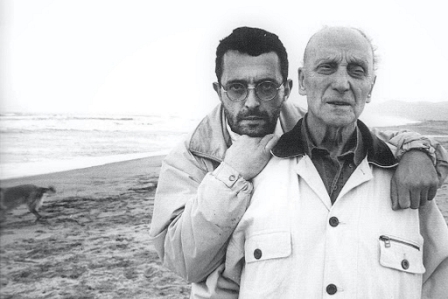
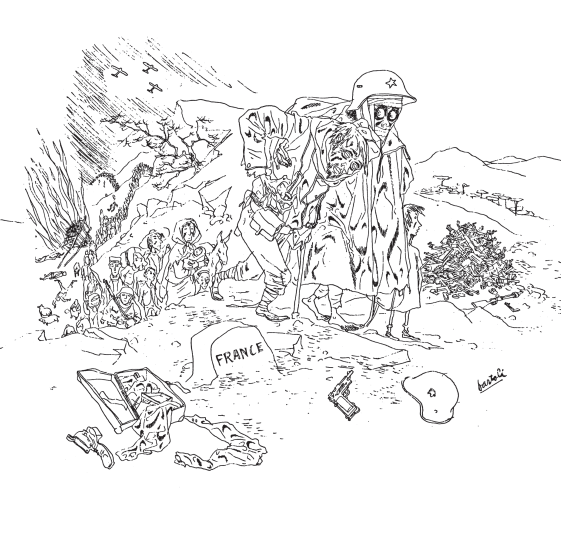
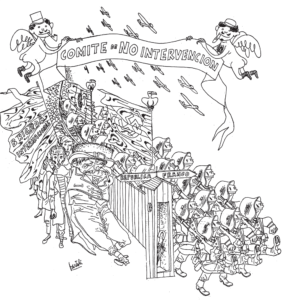
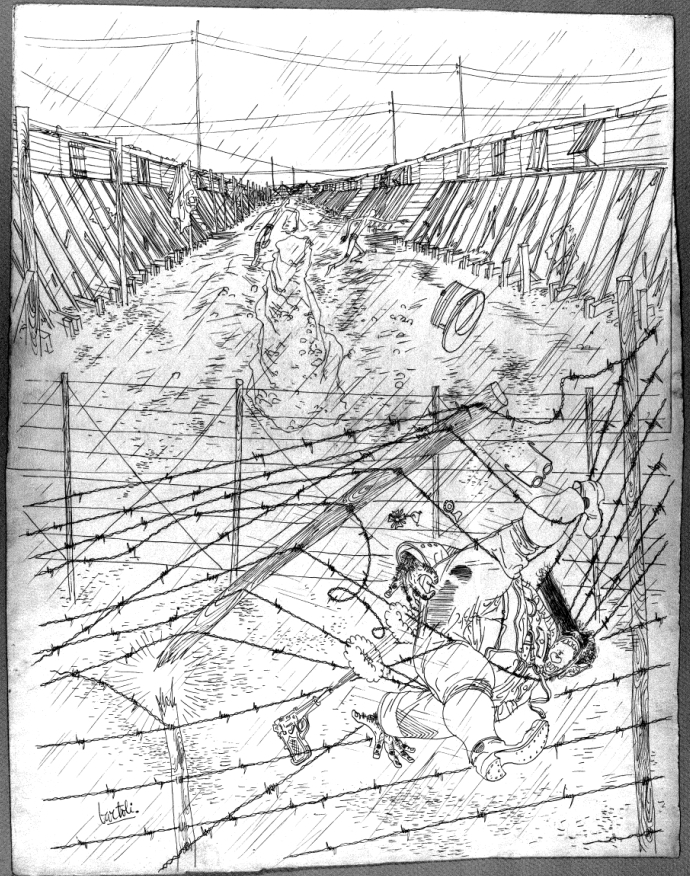
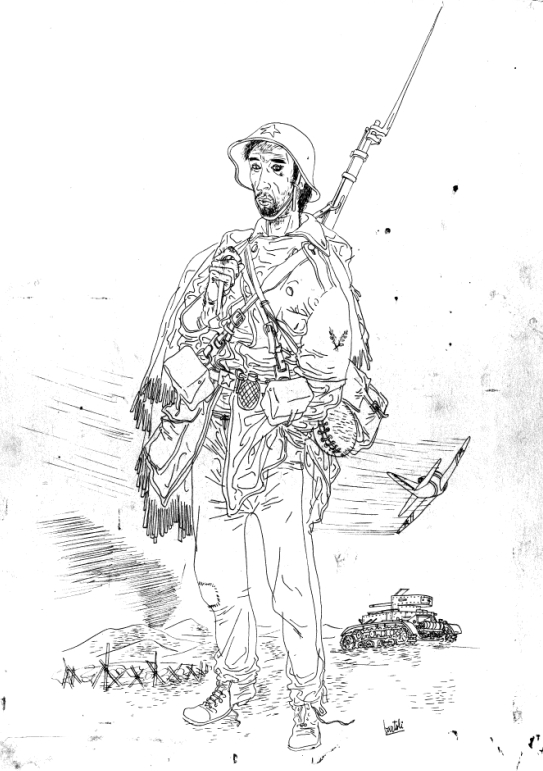
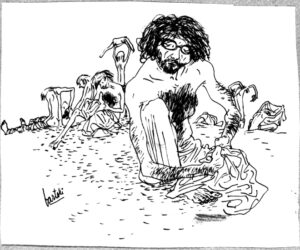
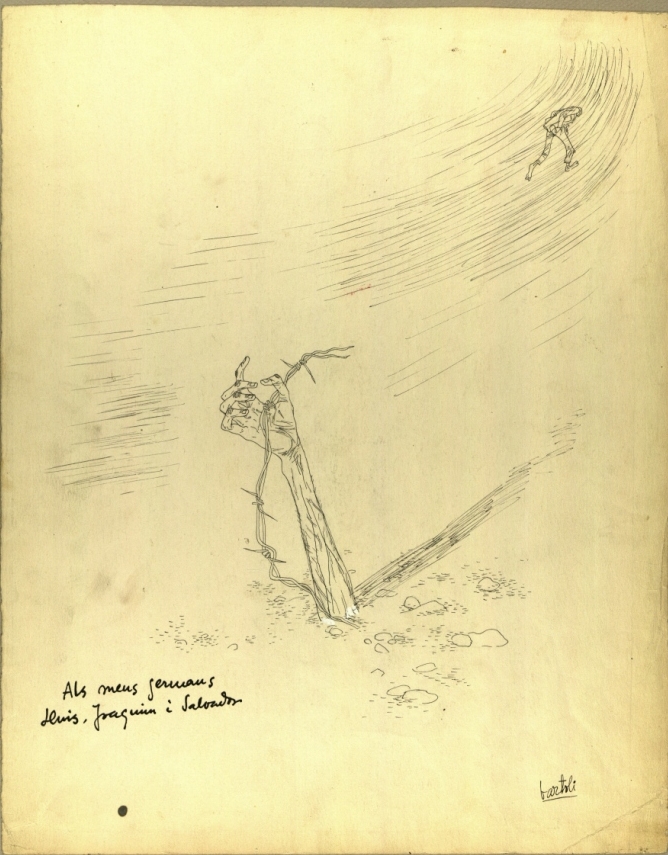












[…] Full text at The Volunteer. […]
[…] […]